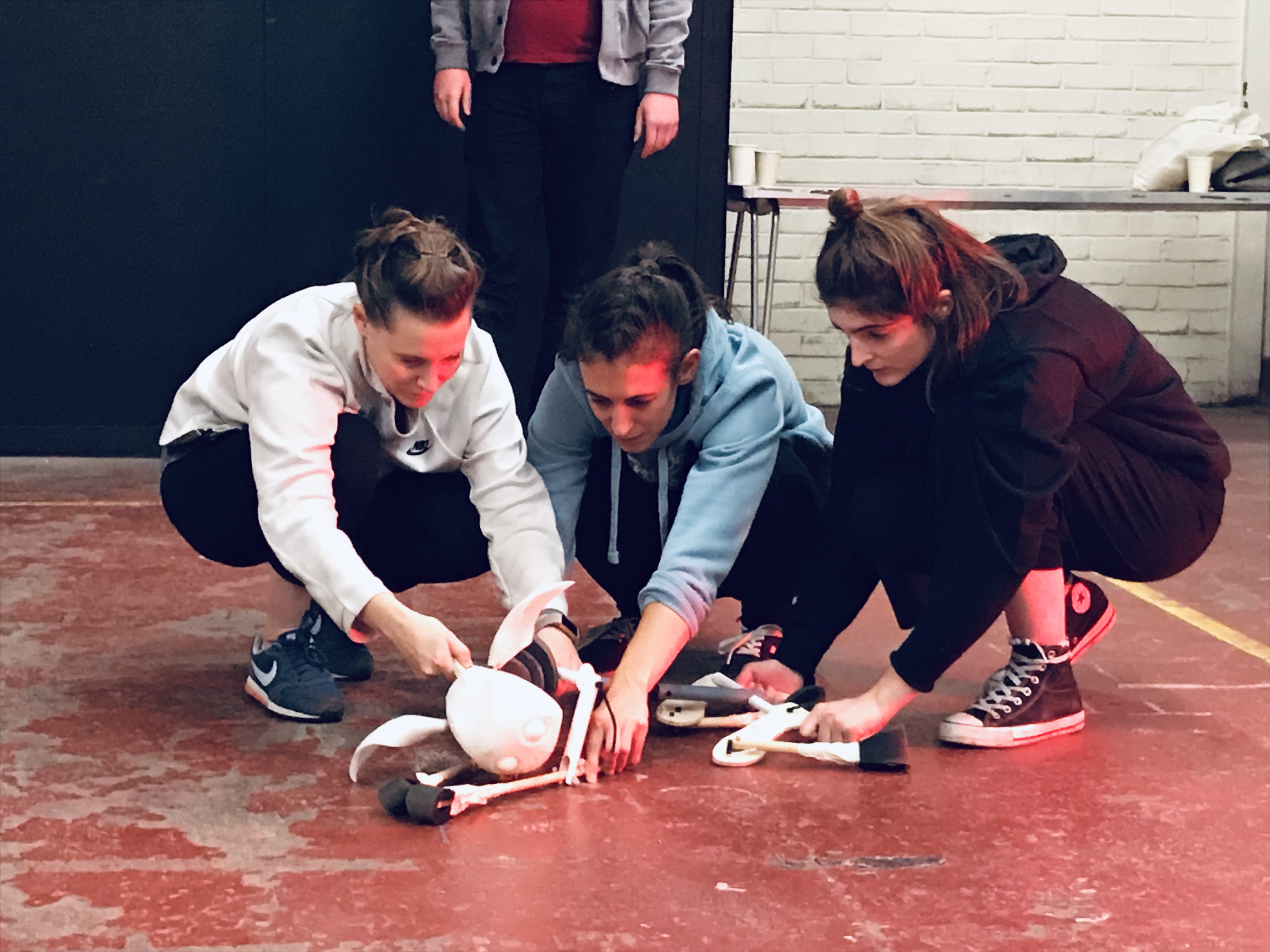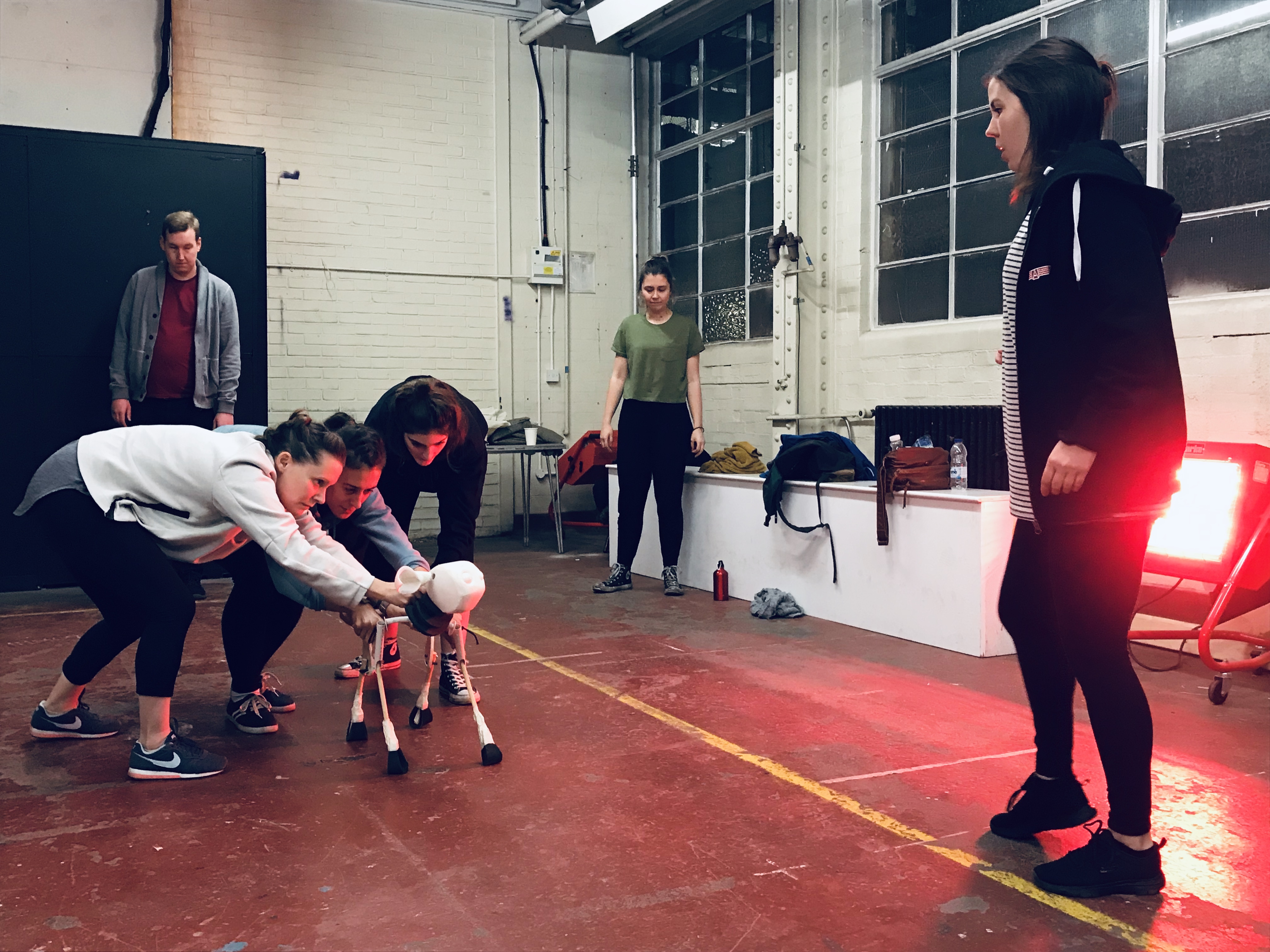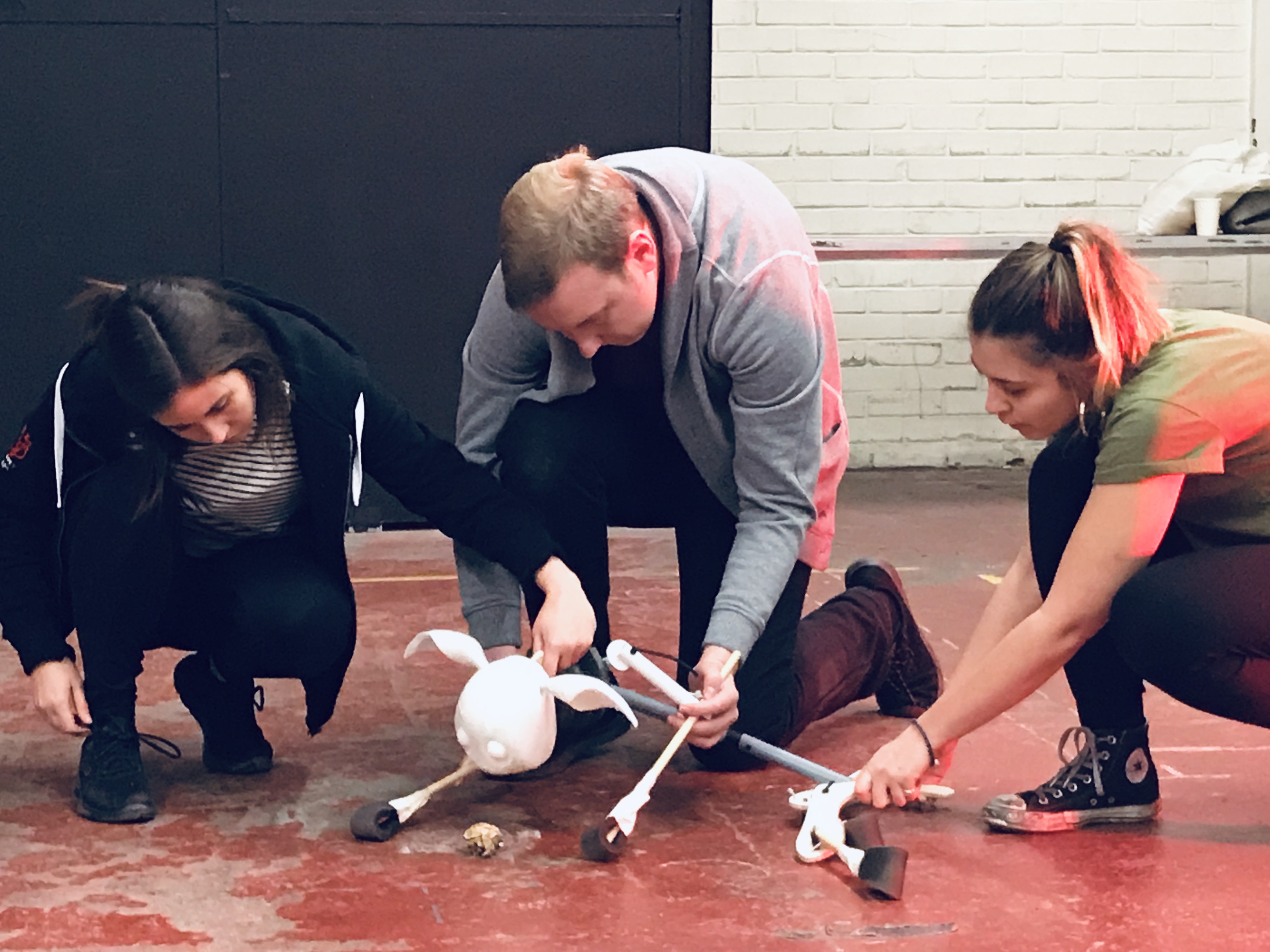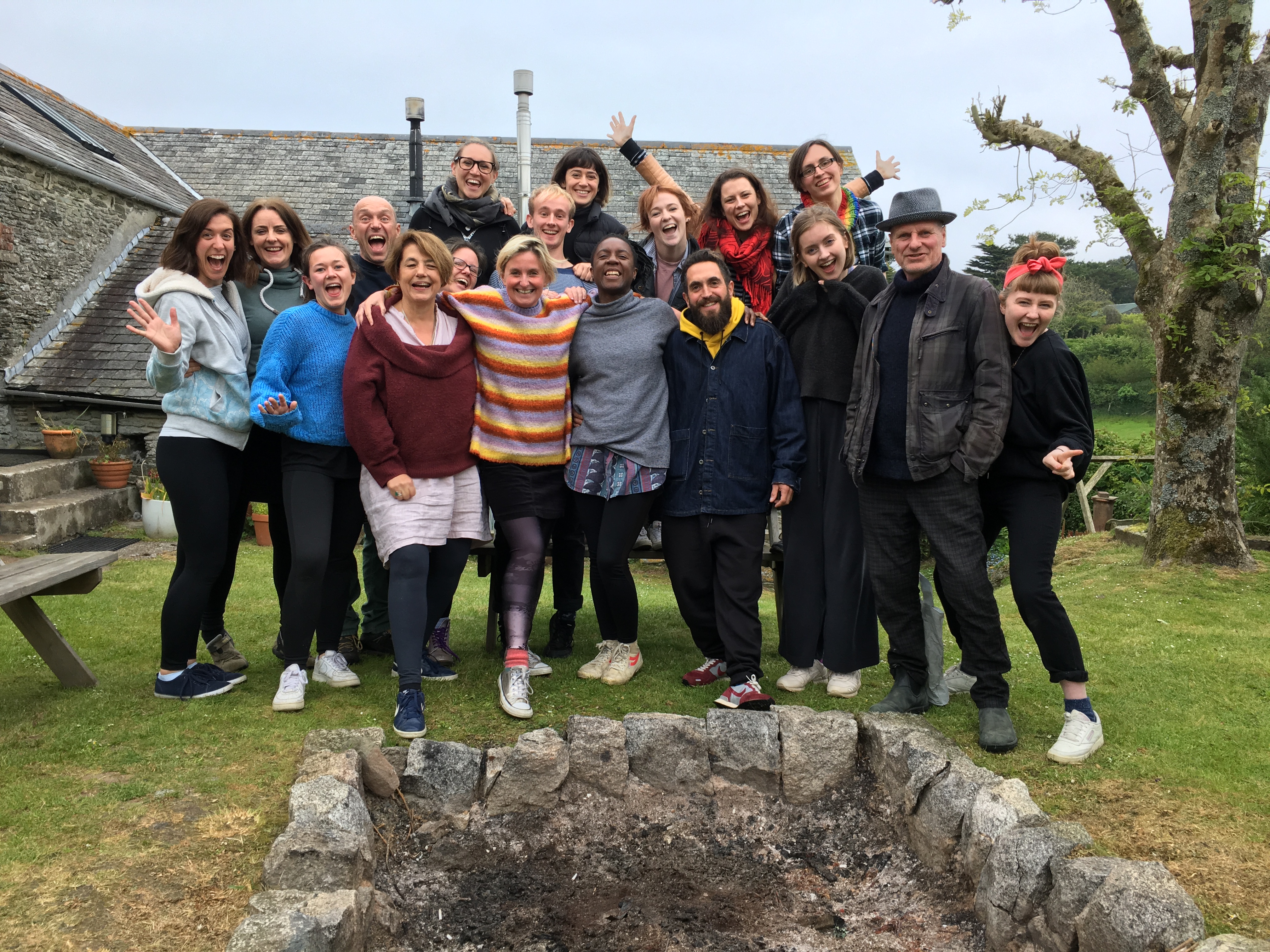
Most theatre makers and performers in this country will have heard of Kneehigh theatre company, originally formed in Cornwall and now performing internationally. Over its nearly 40 years of making theatre the company has built up a repertoire of exciting work that twists and turns traditional storytelling conventions on their head to delight and provoke its audiences. Moving down to Cornwall last year I felt perhaps I had inched a little closer to my dream of working with this company, physically if nothing else. When I gained a place on the first Kneehigh Kitchen workshop back in May and set off to the hallowed ‘Barns’, I couldn’t contain my excitement, and why indeed should I!
The Barns is Kneehigh’s rehearsal space, a National Trust barn near the Cornish coast, above the village of Gorran Haven. It is just as you would imagine it to be, with a woodburner to heat the rehearsal room, a lovely large kitchen, and outside a firepit to gather round of an evening, chatting about the day’s discoveries.
Mike Shepherd, who started Kneehigh in 1980, told us how special The Barns is to him and the company, a sort of sacred space. In that spirit I decided not to take any photos of the building and the spaces within, apart from the firepit. Those three days at The Barns were a special and unique experience shaped by and shared by only those present. What I now hope to share with you is the impact the experience has had on me as an artist.
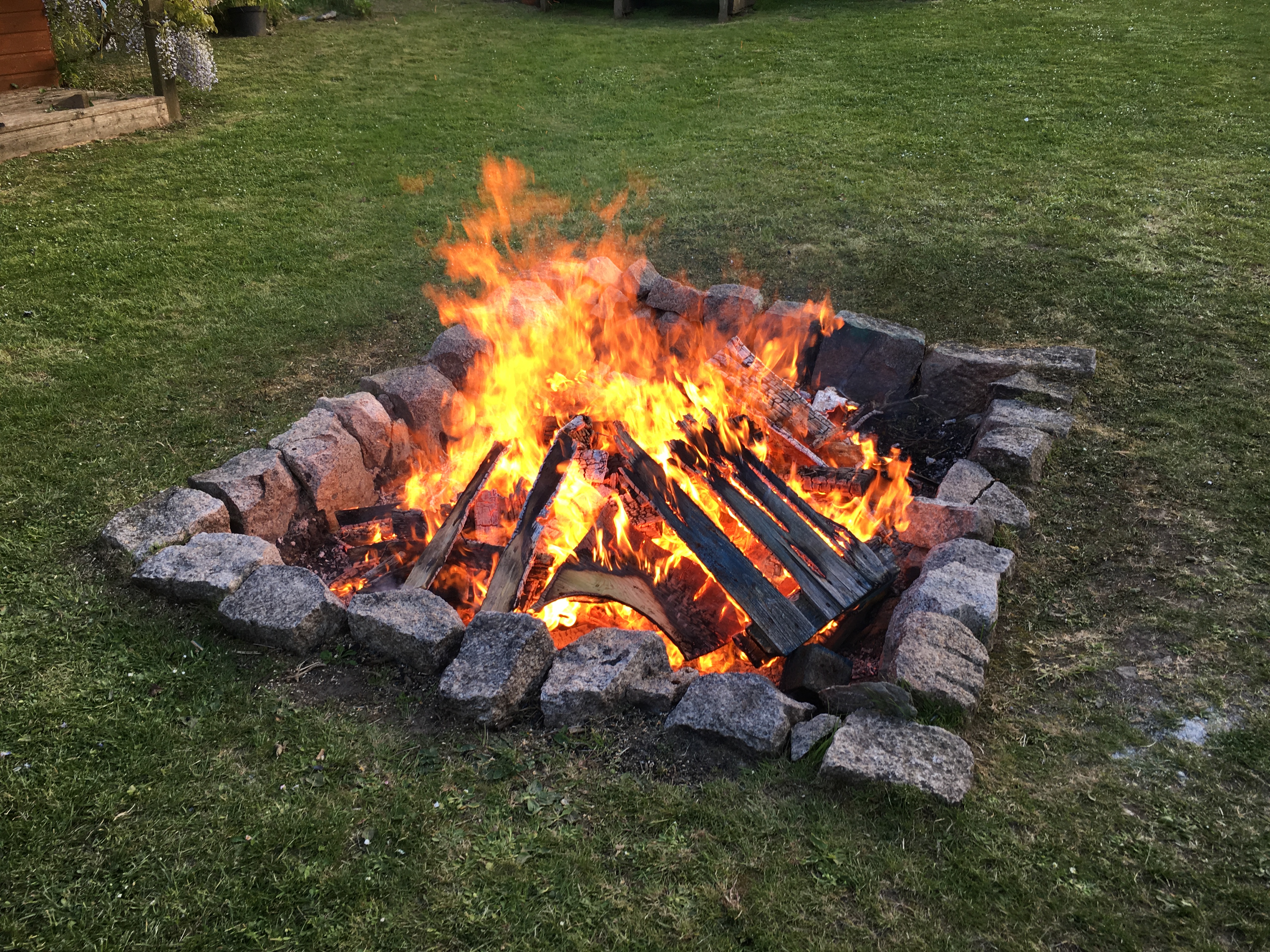
I moved to Cornwall in April last year. I had been living in London for a few years and grown tired of the noise, pollution, chaos and general franticness of life in the capital. Although I now live in one of the most beautiful parts of the country I have struggled to find creative opportunities down here, the majority of my network being back in London. There has been a lot of travelling up the country for work, networking events and workshops, so when the opportunity arose to do something creative down here, with other people coming down here rather than it being me going up there yet again, it felt extra special. Although I live in Falmouth, about an hour from Gorran Haven, it felt like I was welcoming people to my neck of the woods.
Getting to play and work in The Barns was a rare privilege, and has created memories I will always cherish. It was lovely to work with Mike and the joyful energy that is Nandi Bhebhe, both whom I worked with at Curious. The artists I met and worked with during the workshop came from various different areas of performance, and this variety enriched the experience. I was able to learn from my fellow creatives, from their ideas, their energy, their bravery and their knowledge of how different parts of the industry work. I have been meaning to have a go at the dreaded funding applications for a while but not felt ready, after all I have only started my own theatre company, Muddy Boots Theatre, since finishing the Curious School of Puppetry. However, after talking to one of my lovely housemates during the workshop (Kneehigh put us up in fantastic accommodation nearby), who runs her own circus company and has extensive knowledge of the funding process, I took the plunge and sent off my first ever funding application.
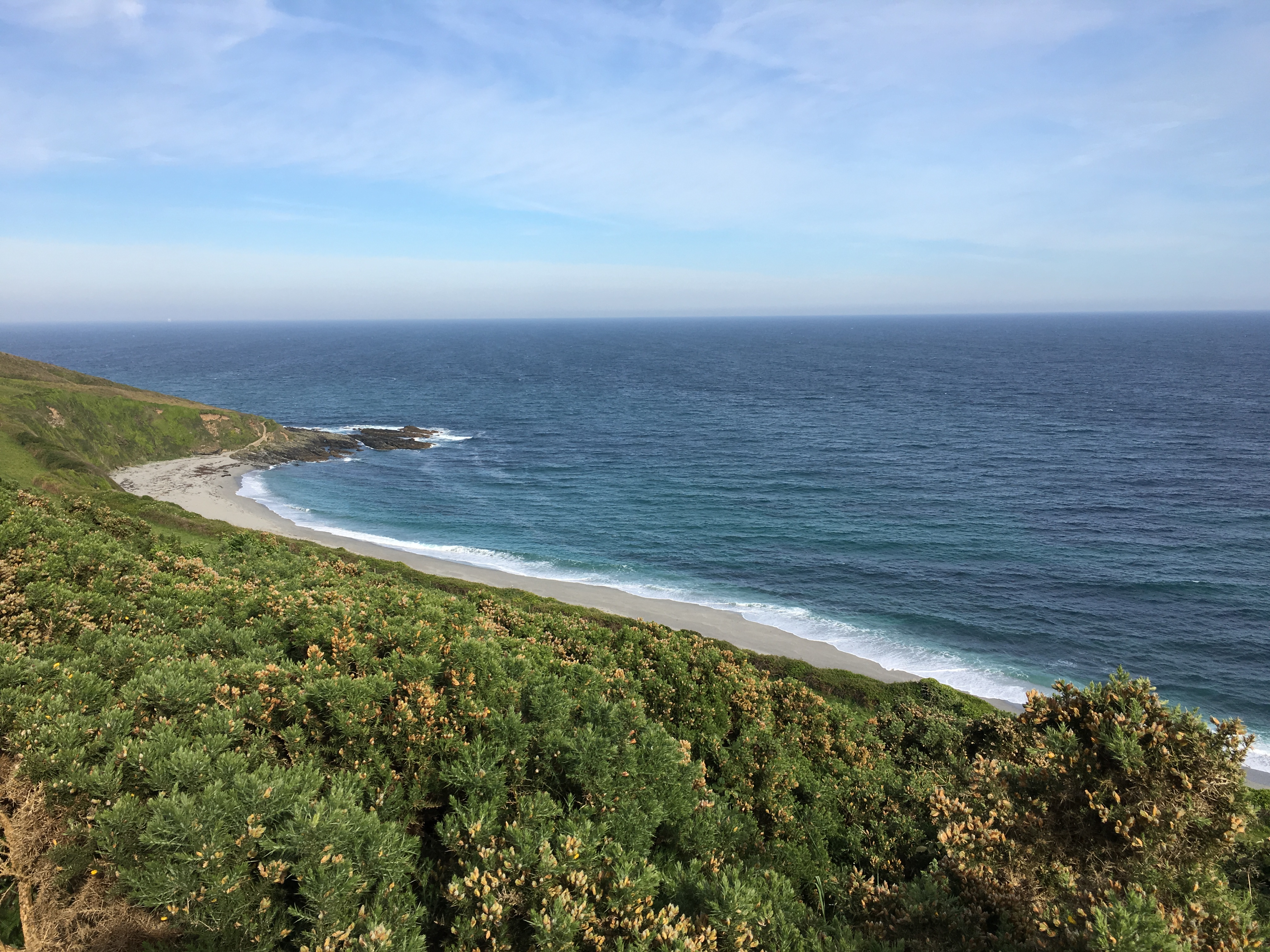
I have a vision for Muddy Boots Theatre as a rural touring company eventually with its own base in Cornwall, an arts centre open to the community, offering workshops, shows, events, a little bookshop and café and a space to think and create. Marching along the cliff path as a group with Mike, singing out to the sea during our vocal warm-up, stretching up to the open sky with Nandi, taking the work out of the rehearsal room and into the open, showed me how I can make the most of my surroundings here in Cornwall when I get to the point of creating my first show down here with a group of performers. We will warm our voices up in the fresh sea air, work our muscles along the coast path, take inspiration from the land, sea and sky around us. There are companies down here already doing this of course, and making wonderful work – Kneehigh, Wildworks and Rogue Theatre just to name a few – but those few days at The Barns has shown me that there is always space for your own creativity, your own ideas.
With each course I do, each job I take, I expand my network of fellow creative souls. I expand my mind with new ideas. The Kneehigh Kitchen gave me the gift of a very special few days exploring, playing and learning with a group of warm, generous and inspiring people. I headed back to Falmouth with new friends, a strengthened vision of my future creative plans, and a smile.
